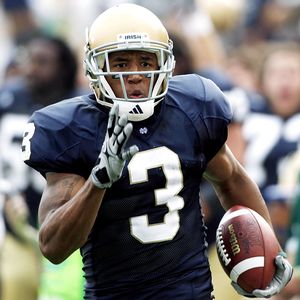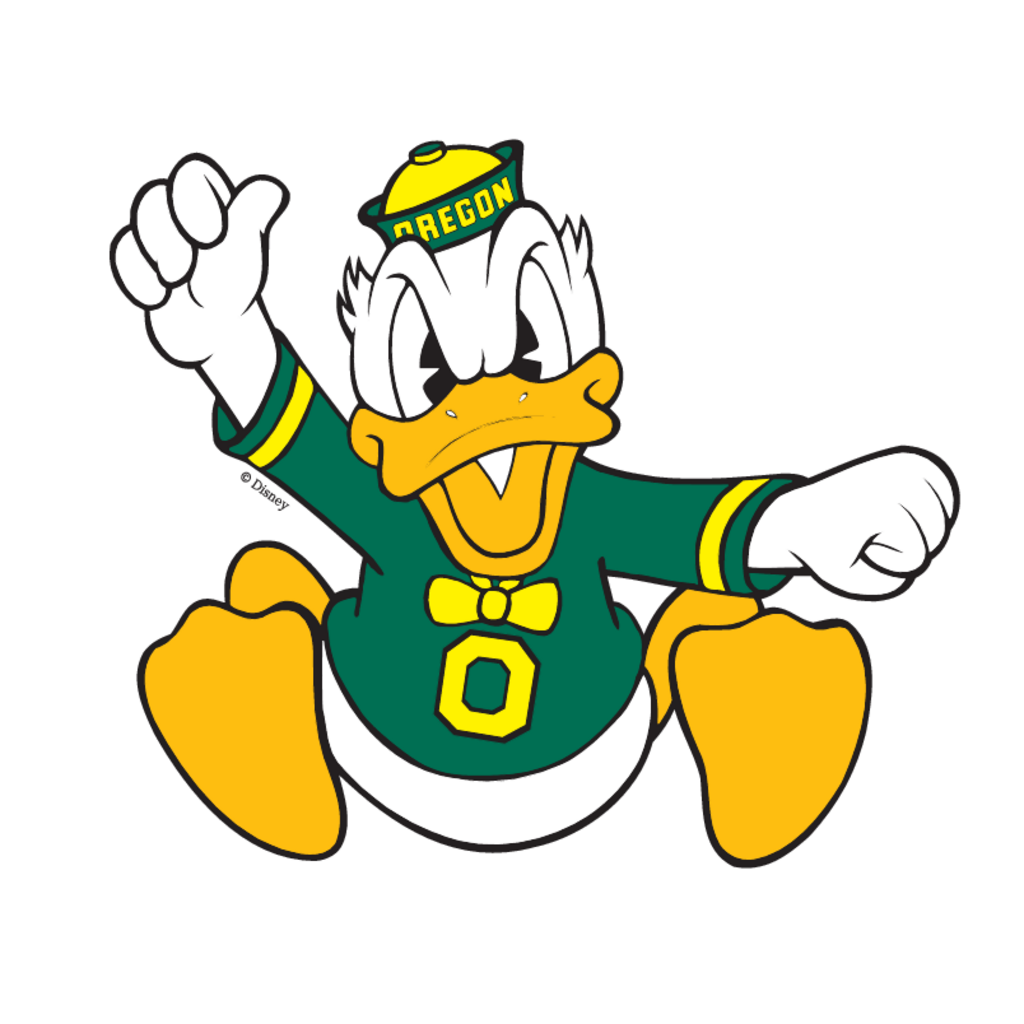http://www.washingtonpost.com/wp-dyn/co ... 02068.html
SMU was bad. Really bad. They were on their 4th probationary period in 11 years when the DP was enforced. Also, the cover up of the players robbing the payroll office and not receiving any kind of punishment while the boosters paying back the stolen money was a unique incident in itself. SMU has not even come close to recovering from this but they had be made an example of and Bennett was right on the nose when he said Alabama should be thanking SMU for what they did in the '80s.'Death Penalty' A Relic Of the Past
After SMU, NCAA Shows Leniency
DALLAS -- The only light in Phil Bennett's office emanated from two monitors that continuously displayed video of his team's next opponent. Fighting a fever after a sleepless night, the football coach holed up in a dark room on a September afternoon, searching for ways to infuse life into his long-suffering Southern Methodist team.
The Mustangs have had one winning season since 1987, when the NCAA imposed the "death penalty" on the football team for rampant rules violations, including payments to players. The unprecedented punishment shut down the program for two seasons. Two decades later, SMU coaches and players -- some not born when the ruling was meted out -- still are struggling to return the team to prominence.
"It is nothing [compared] to this devastation, but it's almost like the nuclear bomb," said Bennett, a Texas native in his sixth season as head coach. "Nobody knew the devastation the death penalty would do to this program. It was a Scarlet 'D'."
Since SMU received the punishment, 29 programs in various sports have been eligible for the death penalty -- meaning two sets of major NCAA rules violations occurred at a school within a five-year period -- according to an NCAA database. All were spared. And because of the long-lasting effect on SMU, some observers familiar with NCAA investigations question whether the penalty ever will be imposed again.
"Now with the benefit of hindsight, everyone, including the NCAA, recognizes that the death penalty is just that: It is death and it is not helping," said J. Brent Clark, a former NCAA investigator who is an attorney in Norman, Okla. "Because of the SMU experience, the NCAA realizes it's too severe a penalty for the institution to recover from."
The death penalty has been used to criticize NCAA enforcement because it is talked about as a "sword" that is not swung, said Jack Friedenthal, a George Washington University law professor who was a longtime member of the Committee on Infractions, which acts as judge and jury in NCAA investigations. "It is a minor factor because people don't believe it will be used today," he said.
David Swank, a former chair of the infractions committee, said SMU's struggle to recover probably has made the NCAA reluctant to impose the penalty again, but added that the widespread nature and acceptance of cheating at SMU made for an "extremely unique case. We never saw another case where it was even close to that."
'A New Mentality'
--------------------------------------------------------------------------------
In the early 1980s, SMU broke school records at the same time it broke rules. On the field, the Mustangs won 41 of 47 games between 1981 and 1984 and were known for the famed "Pony Express" backfield of Eric Dickerson and Craig James. Off the field, almost two dozen players received payments. Rule breaking was allowed to continue after SMU initially was placed on probation for paying players.
But the climate was changing. In an effort to aggressively crack down on rule breakers, the NCAA staged a special convention on integrity in 1985, during which university presidents voted overwhelmingly to implement Proposition 3, known as the repeat-violator rule. If a school committed two sets of major violations within a five-year period, the NCAA could shut down the program for up to two seasons, a drastic measure that soon became known as the "death penalty."
Having coached in Southwest Conference, of which SMU was a member and which disbanded in 1996, Bennett is familiar with the renegade reputation of the league and said that while cheating was "going on everywhere," the "flair" with which SMU cheated made the Mustangs ideal targets for the NCAA's new initiative. Chuck Smrt, who supervised the SMU investigation for the NCAA, said last week that the punishment "reinforced a new mentality, a new philosophy on enforcement that started with that convention" in 1985.
The announcement of the punishment in February 1987 became a surreal scene when David Berst, then the NCAA's director of enforcement, fainted after declaring that SMU was banned from competing in games in 1987. The school decided to shut down the football program for a second year to further assess its future.
The effect was immediate. Bennett, then defensive coordinator at Purdue, was among the scores of coaches who descended upon SMU's campus, recruiting players who suddenly were without a team.
When SMU took the field again in 1989, new coach Forrest Gregg, an SMU alumnus and a member of the Pro Football Hall of Fame, had a team largely comprising walk-ons. But during a pep rally, the optimistic Gregg said it would take SMU less than a decade to play in the Cotton Bowl. The Mustangs haven't been to a bowl game since 1984.
"I don't think the NCAA knew what they were doing when they did it," Gregg said last week. "They didn't have anything to go by other than hitting SMU with the best thing they had. If they had known, they probably wouldn't have done it."
Some former infraction committee members and investigators said the penalty could be imposed again if the circumstances warrant. But Clark believes other schools that have exhibited the same disregard for rules have avoided the death sentence because the NCAA wants to protect its self-interests.
"The underlying implication is that the NCAA is a de facto cartel, and the purpose of a cartel is to protect the product," Clark said. "And to impose penalties that are too severe destroys the product -- and that they don't want to have happen."
Berst, who now is the NCAA Division I vice president, responded by saying, "That doesn't sound like anyone that has any significant understanding of enforcement."
Cooperation Is the Key
--------------------------------------------------------------------------------
In a sense, Berst said SMU's case illustrated the old-fashioned way to deal with investigations: don't disclose information and attempt to avoid detection over a long period of time. Decades ago, schools did not have compliance officers to help teams follow rules. Some schools became confrontational during investigations.
Over the past 20 years, schools have self-reported violations and have become more cooperative during the investigation process, which often reduces penalties. Hale McMenamin, an NCAA investigator from the 1970s through the '90s, said: "Once the enforcement and the schools started working together on processing these allegations, then it made the hearings much smoother. It was not as much confrontation. I saw a distinct change in my latter days."
In the most severe examples of cheating since SMU's punishment, the NCAA cited unique circumstances that enabled the school to avoid the organization's harshest punishment. In its final reports on violations, the NCAA specifically mentioned the death penalty as a possible punishment in only five cases since 1987, but each school's cooperation with the investigation helped diminish the punishments.
In 2005, Baylor was forced to eliminate nonconference men's basketball games for a season but avoided losing an entire season because the NCAA said the school took "decisive" action after it learned of violations that were committed under former coach Dave Bliss. The school self-imposed penalties that included a postseason ban.
Perhaps no school came closer than Alabama to receiving the death penalty. In separate incidents, football team boosters gave thousands of dollars and other perks to a high school coach and a player and his father in attempt to steer players to Alabama. In 2002, the Crimson Tide was banned from appearing in a bowl game for two years, but infractions committee chair Tom Yeager said the team would have received the penalty had the school not been cooperative.
"Alabama was every bit as severe as ours," Bennett said. "I think they can thank SMU for the fact that they didn't have to shut down for a season."
While he was a member of the infractions committee, Swank said the death penalty was mentioned but never seriously considered during deliberations about punishment. Still, he and the NCAA's Berst believe having the penalty available acts as a deterrent.
"The SMU case sort of stands out there -- I'm not sure what to call it -- but it's out there and everyone says, 'Oh, gosh, I don't want that to happen to us,' " Swank said. "I think there is at least some care by the schools, so maybe it has had a lasting impact in that regard."
SMU's Bennett echoed the sentiment, saying: "A lot of people used to come into programs and say, 'I'm going to do this, do that, then the next two years I'm going to win and get another job.' Probation was harmless. And they [the NCAA] might not even get them before it's done. I think it has deterred that."
Friedenthal, the former infractions committee member, said the death penalty likely won't be imposed again because it is "like the death penalty in criminal cases: You don't like to do it. There is a real reluctance to go that far." But he said it is important to keep the penalty on the table because there remains a chance "you are going to have someone who goes out on a very long limb and gets sawed off. You could get a situation where the entire situation is corrupted."
The imprint remains on SMU. Before a recent home game, students frolicked on Bishop Boulevard. One tailgating tent displayed a framed poster of the Pony Express. Gregg said the link between SMU and the punishment will "outlive a lot of people." Bennett said the program is a year behind after the team finished 6-6 last season and failed to make a bowl game. The Mustangs are 1-4 this season. The unprecedented punishment is part of the school's tragic past, although a shadow lingers two decades later.
"And I'm not out of it yet," Bennett said. "Let's not kid ourselves: We had better pick it up."
He laughed hard.
"And we will."
As for another possible death penalty? I don't think we'll see another one for a long time, but its going to happen. The more time that passes by since the days of the Pony Express scandal, the more I think we will see programs pushing the envelope and finding ways to get that edge. I think another 10 or 20 years need to go by before that happens though, however, with the current system CFB has in regards to the BCS, then we might see boosters doing all they can to get their school the BEST athletes and it could result in another death penalty sooner rather than later. If we had a playoff, then maybe we would avoid such a catastrophe.


